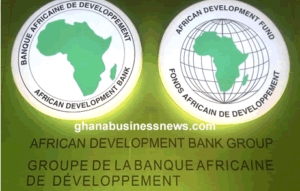AfDB loans $75m to Ghana Infrastructure Investment Fund
 The African Development Bank (AfDB) yesterday October 27, 2021 announced the approval of $75 million commercial loan to the Ghana Infrastructure Investment Fund (GIIF). Ghana has an annual infrastructure deficit of $400 million, which makes this loan a timely intervention.
The African Development Bank (AfDB) yesterday October 27, 2021 announced the approval of $75 million commercial loan to the Ghana Infrastructure Investment Fund (GIIF). Ghana has an annual infrastructure deficit of $400 million, which makes this loan a timely intervention.
According to the Bank, the loan approved by its Board will enable the state-owned GIIF to efficiently leverage its paid-in equity capital of $325 million to secure additional debt resources to finance several critical Ghanaian infrastructure projects and reduce the country’s estimated multi-billion-dollar infrastructure finance deficit.
Ghana’s Ministry of Finance has indicated that the country needs $7.3 billion to improve its infrastructure deficit.
“This loan is an important step to anchor the sustainability of a national infrastructure financing vehicle in Ghana, a model we’d like to promote to bridge the infrastructure financing gap over the continent,” Amadou Oumarou, the AfDB Director for Infrastructure & Urban Development was quoted as saying in a statement.
In terms of development impact, the AfDB’s participation is expected to catalyze private sector-led infrastructure development, expand access to infrastructure services in Ghana, and generate significant employment opportunities, the statement said.
It added that the AfDB’s support aligns with Ghana’s Coordinated Programme of Economic and Social Development Policies 2017-2024 and Medium-Term National Development Policy Framework (MTDF 2018-2021), as well as the AfDB’s Ten-Year Strategy, and High-5 strategic priorities.
It notes further that as of July 2021, the AfDB has provided over $3 billion of financing for various projects in Ghana, of which over $600 million has been directed towards various road, aviation, and rail transportation projects.
According to the World Bank, Ghana has an advanced infrastructure platform when compared with other low-income countries in Africa. It notes that Ghana’s coverage levels for rural water, electricity, and GSM signals are impressive, adding that a large share of the road network is in good or fair condition.
However, it points out that Ghana’s most pressing challenges lie in the power sector, where outmoded transmission and distribution assets, rapid demand growth, and periodic hydrological shocks leave the country reliant on high-cost oil-based generation. Exceptionally high losses in water distribution leave little to reach end customers, who are thus exposed to intermittent supplies, it states.
The World Bank further notes that addressing Ghana’s infrastructure challenges will require yearly expenditures to the tune of $2.3 billion, indicating that the country already spends about $1.2 billion per year on infrastructure, equivalent to about 7.5 per cent of GDP.
However, it states that a further $1.1 billion is lost each year to inefficiencies, notably underpricing of power.
Meanwhile, the country has an annual funding gap of about $400 million, notably related to power and water.
Since 2016, the GIIF has committed over 88 per cent of its equity investment capital towards several infrastructure projects within the transport, climate resilient energy, ICT and affordable housing sectors, the AfDB noted.
By Emmanuel K. Dogbevi
Copyright ©2021 by NewsBridge Africa
All rights reserved. This article or any portion thereof may not be reproduced or used in any manner whatsoever without the express written permission of the publisher except for the use of brief quotations in reviews.
